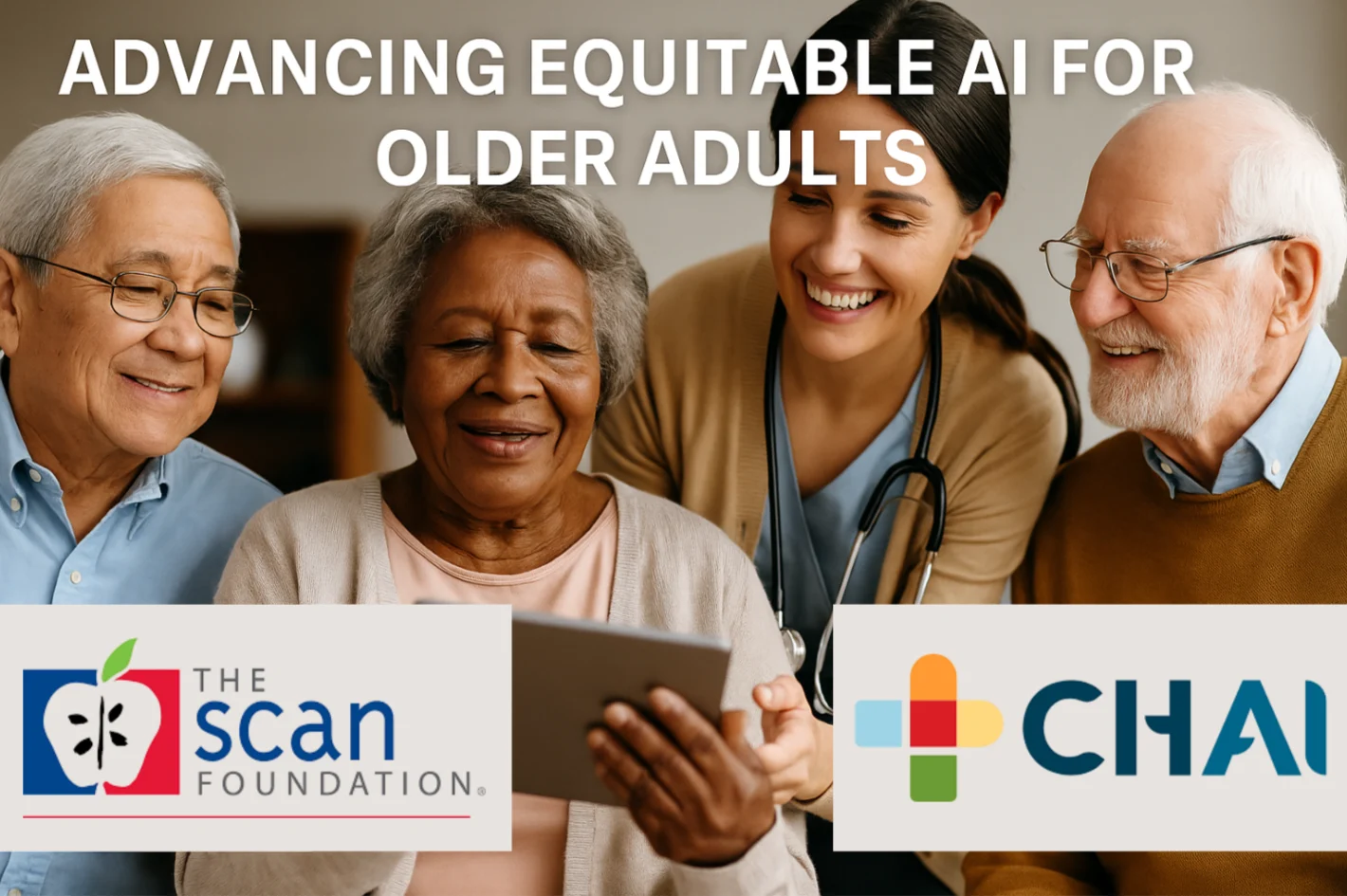Advancing Fair & Effective AI for Older Adults: Our partnership with The SCAN Foundation
2 September 2025
In early 2025, The SCAN Foundation (TSF) supported a six-month planning grant (January–July 2025) with CHAI to lay the foundation for equitable, effective AI solutions for older adults, particularly those in underserved and marginalized communities.
Together, we brought researchers, health system leaders, data innovators, and community voices into conversation to identify where AI can have the greatest impact in improving care for older adults, and where it risks leaving them behind.
Why This Work Matters
Older adults are the fastest-growing population worldwide., with projections indicating that by 2050, more than 2.1 billion people will be over the age of 60, and 80% will be living in low- and middle-income countries.
Meanwhile, we know that while older adults account for a disproportionate share of healthcare spending, they remain consistently underrepresented in the very clinical research needed to guide their care. Recent NIH data show that although older adults make up nearly 20% of clinical research, their enrollment in individual studies is often far lower than expected given the burden of disease. For example, while 10% of participants in studies related to diabetes were ≥ 65 years old, older individuals represent 43% of all prevalent diabetes in the USA.
This mismatch between disease burden and study enrollment highlights a persistent gap: older adults are excluded at disproportionately high rates, whether through upper age limits, comorbidity-based exclusions, or failure to accommodate age-related needs such as longer study visits. As a result, the evidence base guiding clinical care is often not reflective of those most affected.
Therefore, older adults are left out of training data for AI, and so models often fail to account for the realities of people over 85, or those living with multiple chronic conditions and complex social needs. Without intentional design, AI risks reinforcing inequities rather than reducing them.
We focused on validating this issue and building a roadmap for AI that supports healthier, longer, and more independent lives for older adults, anchored in evidence, equity, and the lived realities of aging.
What We Did
Over the course of the grant, we:
Conducted a literature review and dataset cataloging to understand current AI applications in aging care and identify research gaps.
Led 30 stakeholder interviews with experts spanning health systems, data science, and aging services.
Convened a three-part roundtable series with national leaders on data standardization, model validation, and patient engagement.
What We Learned
Certain actionable insights emerged for the design of more effective AI:
The full complexity of older adults’ lives demands linkage between clinical, behavioral, and social inputs, and a nuanced understanding of the settings people live in
We underutilize existing infrastructure for understanding social determinants of health (for example, there being little incentive and adoption of “z” billing codes)
Establishing consistent approaches to behavioral phenotyping and building a common data model are critical enablers
Governance models and community partnerships are also key to making data usable and trustworthy across settings
Patient centricity should then be applied to deployment:
Real-world validation, both local and external, of models cannot be an afterthought but must be embedded in the design lifecycle and be actionable and responsive to diverse care settings
Deployment of AI shouldn’t assume high digital literacy, but be built into systems that are adaptive, useful, and non-invasive.
The Road Ahead
This planning grant with TSF crystallized a vision for advancing AI in older adult care: solutions that are inclusive, evidence-based, and grounded in the lived experience of aging.
Building on this foundation, CHAI is now seeking new partners and funders to catalyze additional research, convene diverse partners, and advocate for standards that make AI safer and more impactful for older adults everywhere.
Together, we can ensure that the transformative promise of AI in healthcare does not leave older adults behind, but instead empowers them to thrive and lead longer, healthier lives.
Download the report here:

